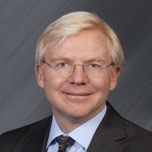I am always on the hunt for wellbeing leadership innovations, those unique twists that turn leaders’ heads in new directions and unlock better pathways for thriving. So I smiled during my entire conversation with Andy Lee, Aetna’s new Chief Mindfulness Officer (a title that sits among the fascinating leadership roles emerging in business) and his colleague Cheryl Jones, the company’s Director of Mindfulness.
Their collaborative mission? To advance wellbeing by integrating mindfulness into Aetna’s workplace culture and services to consumers, as well as the transformation of healthcare and corporations globally. A gigantic undertaking! And one that’s already showing progress. Here’s a bit of my conversation with them in my Face of Wellbeing Leadership series.
Me: What does it mean for you to lead wellbeing?
Andy: For me leading wellbeing means contributing to peoples’ greater awareness of what allows them to lead a happy and meaningful life. I think saying those two things separately is useful. A happy life can mean just doing what feels good. A meaningful life is a big part of wellbeing too. We frequently put ourselves in situations where we might need to do unpleasant things but we do them because they’re meaningful and fulfilling. So wellbeing is a combination of these two: happy and meaningful.
Cheryl: Leading wellbeing for me means we support the employee as a whole person. We acknowledge we’re human beings first. People’s lives have many dimensions—physical, intellectual, social, spiritual, environmental, and financial, as well as professional. Mindfulness can enable us to bring energy and attention to each of those dimensions.
Me: How did Aetna start down the path of using mindfulness as an element of employee wellbeing?
Cheryl: The seeds of our mindfulness journey were planted in 2009 when we conducted a study with CEO Kelley McCabe and her team at eMindful, along with a team from Duke Integrative Medicine. The results were very favorable. People who participated were able to reduce stress, improve sleep, and manage pain better. Some lowered their breathing rates, a positive physiological effect. What we learned from this study was turned into two mindfulness programs for our employee population. We tested the programs first with ourselves before we began commercializing them with our customers.
Andy: To add to what Cheryl is saying, our CEO Mark Bertolini found mindfulness and yoga helpful in his recovery from the chronic pain of a broken neck. As he benefitted personally, he felt compelled to support these disciplines with strategic research, plus share them with our organization and policyholders.
Me: The title “Chief Mindfulness Officer” is quite unique. Say a little more about it.
Andy: It is designed to communicate internally and externally the importance of mindfulness to Aetna. The scope of the role includes bringing the benefits of mindfulness to our employees as well as championing mindfulness practices to our 23 million members, a number that will expand further quickly growing because of our planned acquisition of Humana. To me the title of Chief Mindfulness Officer reflects a new possibility in business: to bring mindfulness practices to employees as well as to impact a significant portion of the American population. This possibility is both inspiring and humbling.
Me: Beyond your employees and members, what other audiences are you striving to affect?
Andy: Wellbeing leadership at Aetna means a conscious commitment to positively impact at least four constituencies. Beyond the two I’ve already mentioned to you—our employees and the members we serve—we’re focused on helping to transform healthcare in the U.S. and becoming an effective role model for other corporations.
Let me say a little more about acting as a role model.
We believe when you’re fully present with what you’re doing—when you are mindful—it resonates throughout the organization. Yes, it affects a person’s physical and emotional wellness, but it also strengthens the sense of compassion and connection between people, leads to more ethical behavior, and improves organizational performance. If Aetna takes its own mindfulness strategy seriously, what we learn can resonate throughout corporate America. Toward this larger aim, we’re well positioned to play a leadership role.
As for the transformation of healthcare, our Chief Medical Officer Hal Paz talks a lot about the behavioral determinants of health and wellbeing. As it turns out, only ten percent of your physical health is determined by the quality of care you receive in the healthcare system. Your health is also based on other factors such as your genetic makeup, where you live, and your social economic status.
A whopping 30-40 percent of your health is based on your lifestyle behavior: whether you exercise, how you eat, and what you do to manage your stress. Healthcare organizations are beginning to wake up to this. So Aetna’s larger query is not only how can we offer the best services to our members when they enter the healthcare system, but also what resources can we provide to help members manage those behavioral determinants of health. In other words, we want to give people tools to stay out of the healthcare system altogether and live happy, meaningful, well lives. The implications of this are huge and could have a ripple effect on the whole industry.
Cheryl: Adding to what Andy said, stress used to be a taboo topic. If a person admitted feeling stressed, it was considered a sign of weakness. Instead, Aetna wants to start bringing stress to the forefront, with better insights about how it impacts wellness behavior.
For instance, as part of supporting our customers, we offer programs for quitting tobacco use and losing weight. But the conversation we’re starting to have—and one that, I believe, demonstrates wellbeing leadership—is about how stress is a barrier to making healthy changes in your life. This is a new understanding of stress: as a barrier to positive change. If we continue to incent people on losing weight or quitting smoking but we don’t address what may be at the core of those behaviors—too much or too little stress—then we’re not supporting truly sustainable changes in health and wellbeing. And this dynamic plays out at all levels, individually and organizationally.
Me: You’re supporting people to reduce stress through mindfulness and other means so they’re more empowered to adopt behaviors for wellbeing. Is that accurate?
Cheryl: Yes. We’re helping members assess the role mindfulness can play to reduce stress so they’re better able to grow in wellness. We educate them about how stress is a barrier to lifestyle change and we provide tools and programs they can use as part of their personal wellness strategy.
Me: We’ve learned that often the way organizations and work are designed can needlessly produce stress. To what extent are you helping companies ask, more fundamentally, how they can mitigate too much stress?
Andy: That’s a good question. Right now we’re looking at that very thing in our own organization.
A lot of our employees—more than 13,000 to date—have taken one of the mindfulness courses we offer. And they’ve gained a lot of personal benefit. To your point, however, when you’re done with the mindfulness course, you take off your headset and turn away from your computer, and you’re still where you were. Aetna is a large, complex, results-driven corporation. So we have to be vigilant not to create unnecessary stress through our work processes and culture.
We’re having discussions internally about what mindfulness is and how it can help us as an organization. This means seeing how mindfulness can influence our systems, the way we do business, and how we develop our leaders. I’m very interested in pioneering this road to increase the understanding that mindfulness is something that goes beyond taking a course. Mindfulness is about how a company does business.
Cheryl: I agree. We’re evolving from being an organization that offers a comprehensive suite of wellness programs to making wellbeing authentically our culture. We don’t want there to be a difference between our programs and the way that we behave together every day—how we show up for work, how we speak to one another, how we set up our meetings, how we eat or don’t eat. We’re on the journey of practicing and creating a culture of wellbeing together. And even beyond wellbeing, for me this is about the healing of corporate America.
READ MORE
- What Is Practical Wisdom? (And Are You Leading From It?)
- Resentment: A Potent Medicine For Good
- Ready To Boost Leader Effectiveness And Wisdom? Try Mindfulness!
- What’s In A Name? New Titles Emerging In Business
- Leading From Authenticity: Boosting Your Energy, Impact, and Wellbeing
- Wellbeing Leadership: Where Are YOU On This Journey?
- Is The Planet Ready For A Different Way Of Leading? Thorlo’s President Says Yes!







I enjoyed Renee Moorefield writing about her growth mindset, thus setting the stage for the interview. It would be interesting to see facts showing results from being mindful.